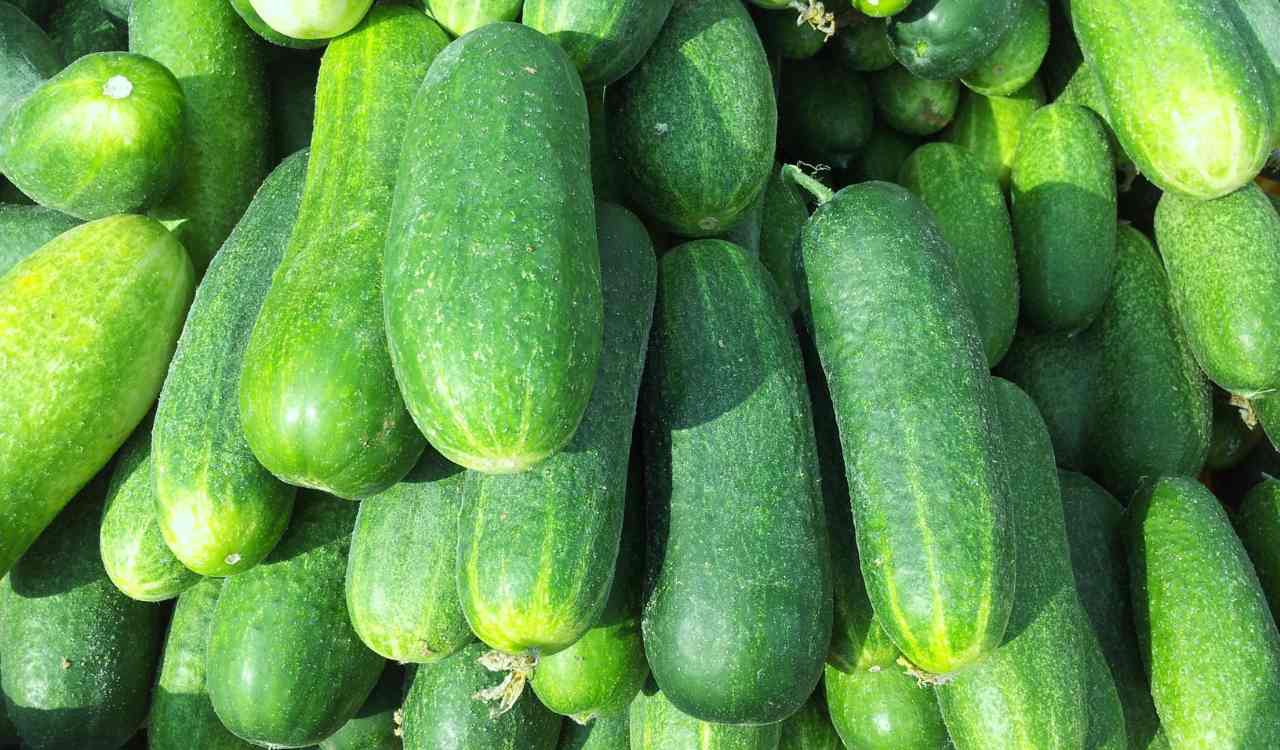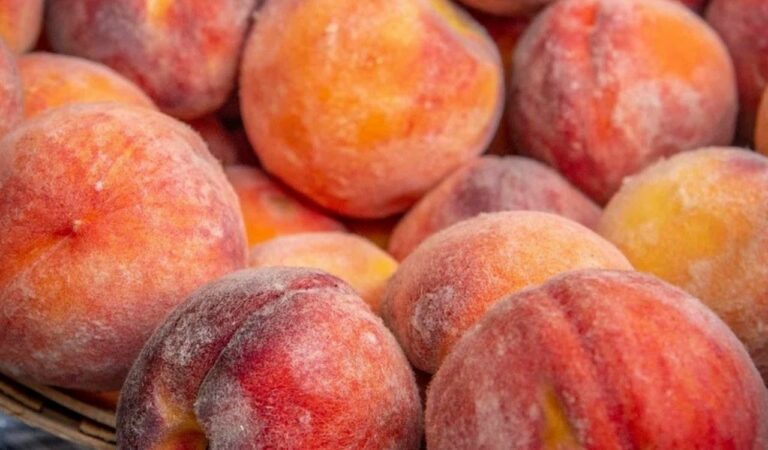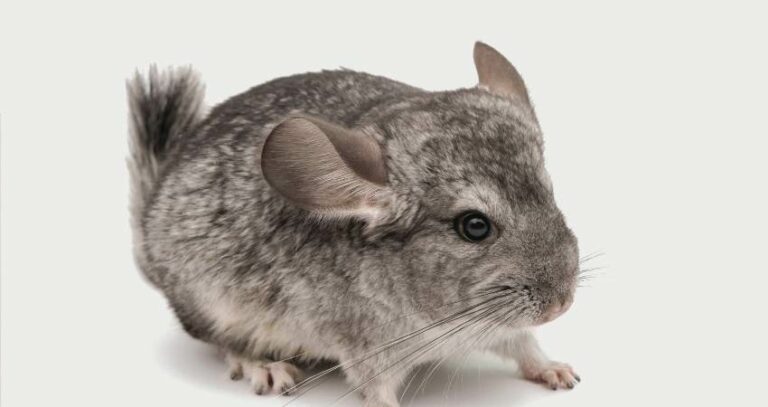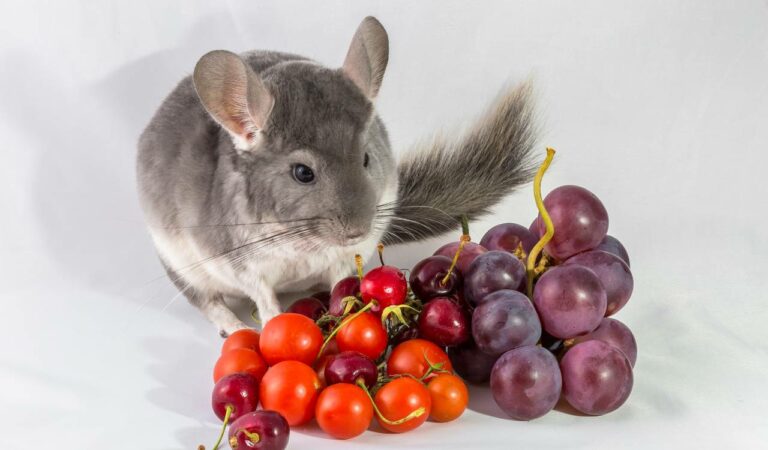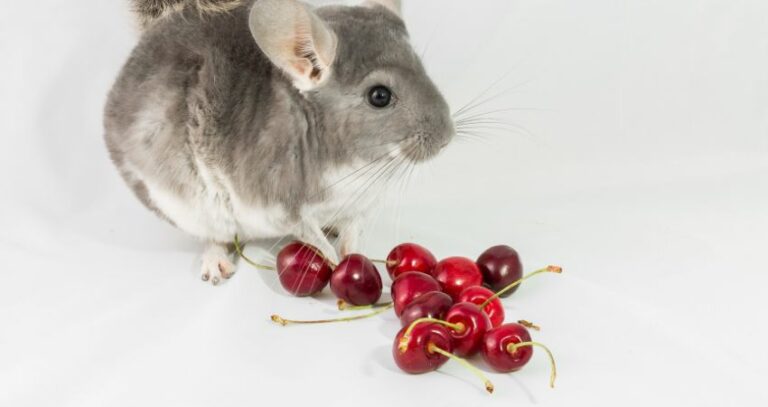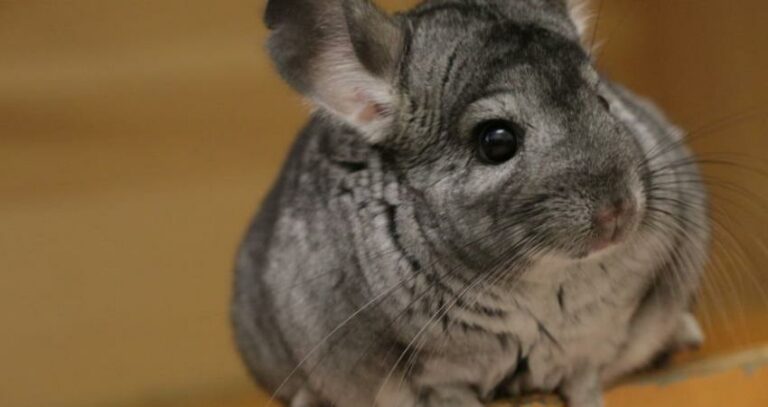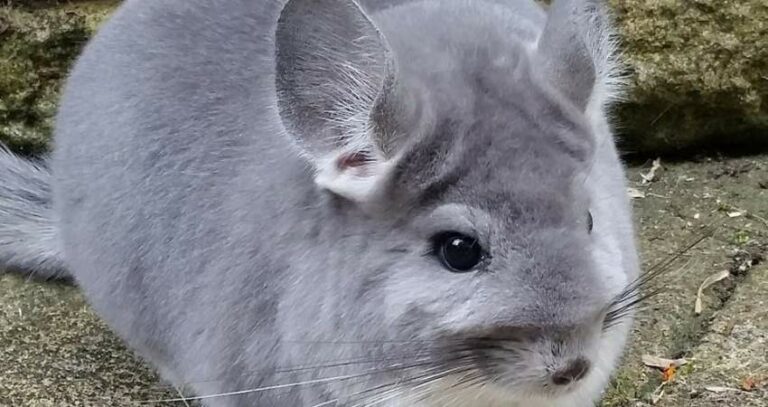Can Chinchillas Eat Cucumbers? Are they Safe?
Apart from grass hay and pellets, you can feed your chinchillas small amounts of fruits and vegetables as treats. But since not all fruits are safe for these pet rodents to eat, can chinchillas eat cucumbers?
Yes, Chinchilla can eat cucumbers but in moderation. Cucumbers are low-calorie fruits packed with numerous essential nutrients like fiber, vitamin C, and other minerals beneficial to chinchillas.
So then, what are the health benefits of chinchillas eating cucumbers, and are there any potential risks? In this blog post, I will discuss this and how to serve the cucumbers to your chins.
Can Chinchillas Have Cucumbers Safely?
Yes. Cucumbers are not toxic. On the contrary, they are highly nutritious fruits, making them safe for chinchillas to eat. My chinnie usually eats the flesh and the skin of cucumbers. The best thing about your pet rodents eating this fruit is that it contains most of the minerals and vitamins they need every day. These include:
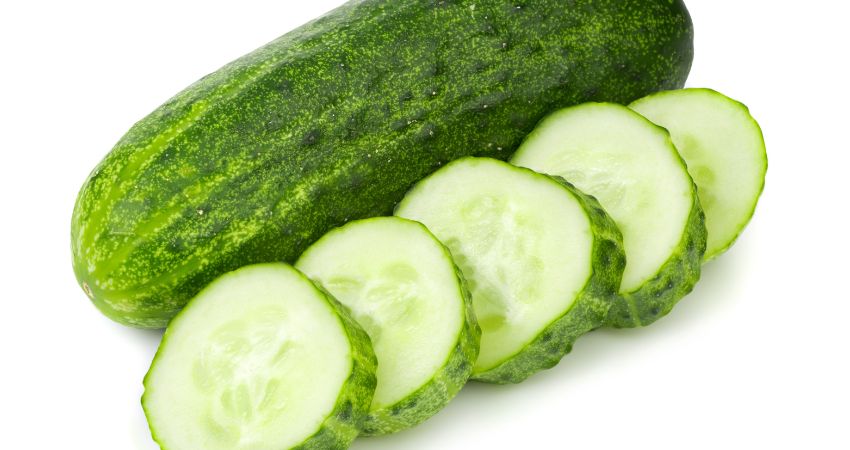
- Vitamin C
- Calcium
- Phosphorus
- Potassium
- Fiber
Even better, cucumbers are low in calories and sugar content, making them a healthy treat for your chins. With peels, the fruits contain about 15 g of calories and 1.67 g of sugar per 100 grams.
Therefore, you don’t have to worry about your pet rodent becoming obese from eating cucumbers. The fruit is also unlikely to cause a rise in blood sugar levels.
Below is a table with data on which nutrients raw and fresh cucumbers contain that make them an excellent choice for chinchillas:
| Nutrient | Amount Per 100 Grams |
| Water | 95.2 g |
| Protein | 0.65 g |
| Fat | 0.11 g |
| Fiber | 0.5 g |
| Carbohydrate | 3.63 g |
| Sugars | 1.67 g |
| Calcium | 16 mg |
| Potassium | 147 mg |
| Phosphorus | 24 mg |
| Magnesium | 13 mg |
| Vitamin C | 2.8 mg |
However, while your chins can have cucumbers, they must eat them in small amounts as a treat. This is because the fruit is high in water, which is not good for the chinchilla digestive system in large amounts. That is why the best chinchilla diet is usually low in moisture to avoid digestive problems like bloating.
Do Chinchillas Like Cucumbers?
Cucumbers are not as sweet as most fruits, such as strawberries and grapes. Even so, most chinchillas like their mild and refreshing sweet taste. In fact, my chin can eat a whole cucumber if you don’t put a limit.
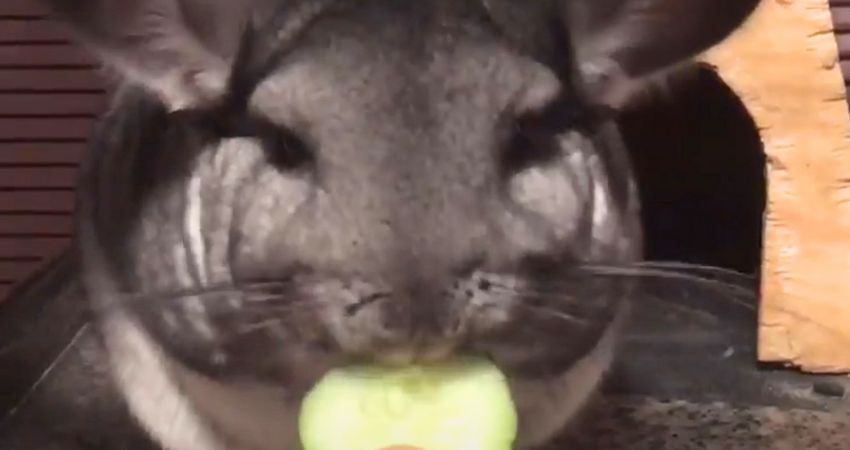
Apart from their mild taste, chinchillas also love the crisp, crunchy, and watery texture of cucumbers. This is because their crunchy texture is crucial in helping them wear down their ever-growing teeth.
Nutritional Benefits of Chinchillas Eating Cucumbers
As long as chinchillas eat cucumbers in moderation, these fruits offer many health benefits. These include:
1. Enhancing Digestion
Regarding nutrition, chinchillas require a high-fiber diet for their digestive system to function perfectly. According to an article by the Avian & Exotic Animal Clinic, lack of fiber in Chinchilla’s diet can result in many forms of indigestion.
These include constipation and gastrointestinal stasis. Cucumbers have some traces of dietary fiber.
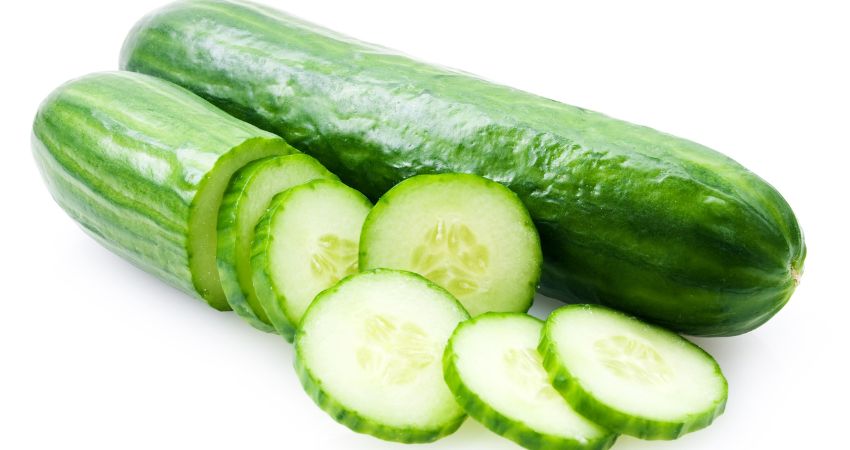
2. Source of Energy
Apart from dietary fiber, cucumbers have some elements of carbohydrates and magnesium nutrients. The carbohydrates are usually converted to energy in your chin’s body to support its physical activities and bodily functions.
Magnesium also plays a critical role in energy production. This helps keep your pet rodent active.
3. Rich in Antioxidants
A 2022 study published by the Journal of Preventive Medicine and Hygiene showed that cucumbers and other Mediterranean fruits have antioxidant properties.
The fruits contain antioxidants such as isoflavones, flavonoids, and vitamin C in small amounts. These nutrients can help strengthen your chinchilla’s immune response and overall health, preventing dental diseases and other chronic illnesses.
4. Managing Blood Sugar and Weight
Cucumbers are a good source of magnesium and are low in sugar and calories. Therefore, eating this fruit can help chinchillas manage blood sugar levels and weight and reduce the risk of developing diabetes.
A 2018 study from the Journal of Chiropractic Medicine showed that dietary fiber may reduce the risk of developing type 2 diabetes. And as it turns out, overweight chinchillas are usually at risk of developing this disease.
While cucumbers have small amounts of fiber, when used to supplement chinchilla’s primary diet, the fiber can be beneficial.
Another 2018 published by Scientific Reports Journal on PubMed showed that dietary fiber can avert obesity in rodents fed a high-fat diet.
5. Promoting Strong Bones and Teeth
Additionally, cucumbers contain minerals such as magnesium and calcium that support strong bones and muscle function.
How Many Cucumbers Can Chinchillas Have and How Often?
Your chinchillas should eat only a single slice of cucumber, the size of your pinky fingernail, to prevent digestive issues.
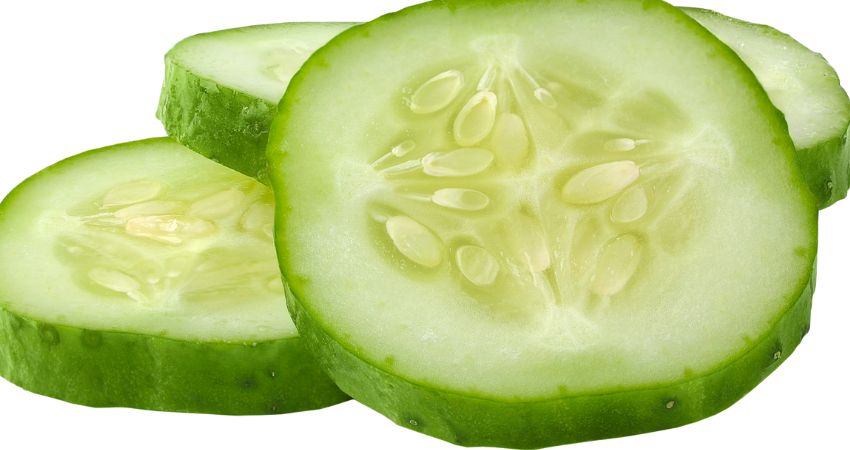
Regarding how often you can feed cucumbers to chinchillas, most vets recommend once a week. Even so, sometimes, I do let my chinchilla eat the fruit twice a week.
How To Prepare and Serve Cucumbers to Chinchillas
When feeding cucumbers to my chinchillas, I always get fresh and organic ones. Then, I wash the cucumber thoroughly with clean water. After that, I cut just one small thin slice and offer it to my chin by hand.
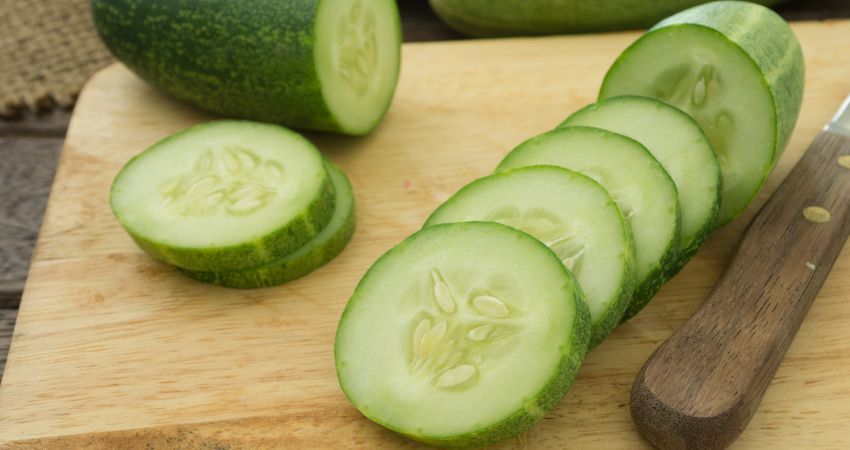
However, you can peel the cucumber to remove the skin if your pet rodent is a picky eater. And if your pet does not finish eating the cucumber within 12 to 24 hours, dispose of it immediately. This is because if it sits longer in its cage, bacteria will grow on it, making the fruit unsafe for your pet to eat.
Health Risks of Overfeeding Cucumbers to Chinchillas?
Yes. Because of their high water content, chinchillas can develop digestive problems from overfeeding on cucumbers. Examples of these problems include bloating and diarrhea. This happened to my chinchilla once, but I was lucky to notice in time, and she was treated.
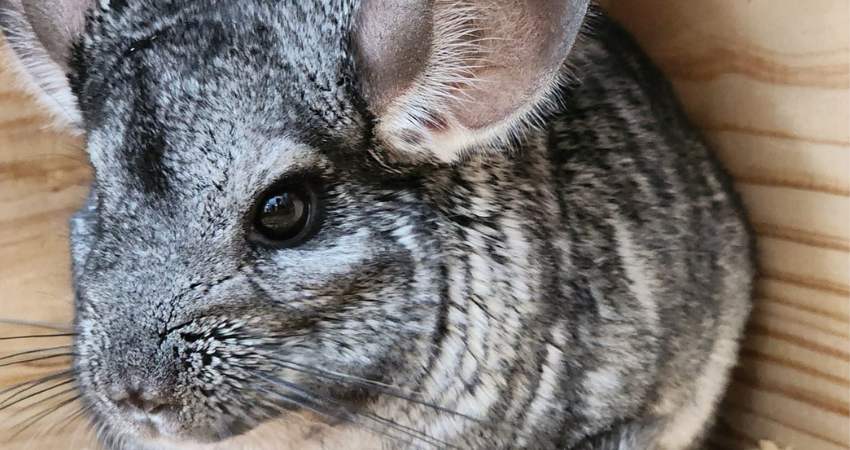
Bloating is a painful condition and could result in the rupturing of the stomach wall or the intestine lining if it becomes severe. With diarrhea, it could lead to dehydration and abnormal bacterial growth.
Another risk is that overfeeding on cucumbers can result in an imbalance of calcium and phosphorus in your chinchilla’s blood. This is because these fruits contain more phosphorus than calcium.
As it turns out, the healthy ratio suggested by veterinarians is 2 parts calcium to 1 part phosphorus or matching amounts. When there is an imbalance, chinchillas could develop severe muscle spasms and brittle bones.
Alternatives to Cucumbers for Chinchillas
Besides cucumbers, chinchillas can have other treats such as parsley, a low-calorie herb. Like cucumbers, parsley offers many benefits to chinchillas, including vitamin C supplementation, strong bones, and blood sugar regulation.
However, parsley contains a high water content, making it unsafe for chins in large amounts. So, even with cucumbers and parsley being healthy treats for chinchillas, they should always have hay and pellets as their primary diet.
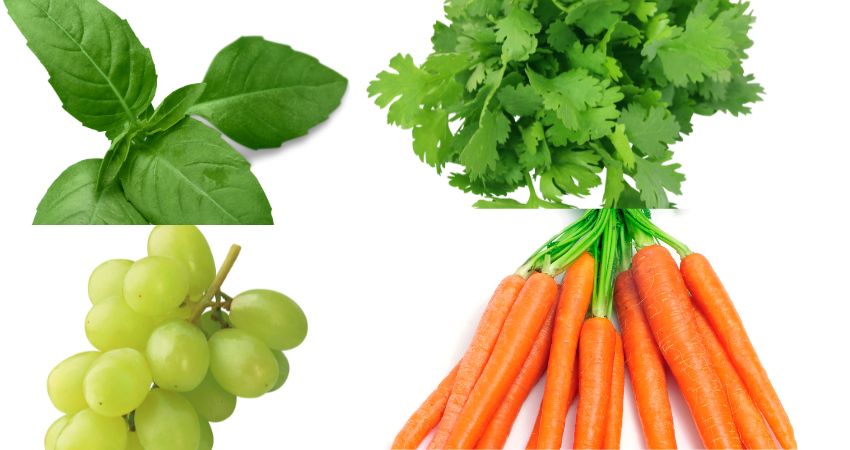
With that said, when feeding parsley to chinchillas, wash them thoroughly and remove the stems. So, apart from parsley, chinchillas eat dandelions. Dandelion leaves and flowers are a healthy and nutritious treat for these pet rodents.
Other safer herbs, fruits, and vegetables your chinchillas can eat include:
- Thyme
- Basil
- Coriander
- Bananas
- Blueberries and strawberries
- Grapes
- Plums and pears
- Kiwi
- Carrots
- Spinach
- Celery
- Cabbage
- Broccoli and lettuce
FAQs
Before concluding this guide, check out these commonly asked questions about chinchillas eating cucumbers.
Can chinchillas have cucumber seeds?
Yes. Like the flesh and skin, cucumber seeds are safe for chinchillas to eat. They are small and soft enough for chins to chew and avoid choking. Even better, they are rich in vitamins and minerals.
Are pickled cucumbers safe for chinchillas?
No. This is because pickled cucumbers contain different seasonings like vinegar, salt, and sometimes sugar. They also have more water content. Therefore, pickled cucumbers can cause more harm to chins, even in small amounts.
Can you feed dried cucumbers to chinchillas?
Yes. Dried cucumbers are equally nutritious as their fresh counterparts. However, they contain less water content. You can dry the cucumbers in a dehydrator for 8 to 10 hours at 135 degrees Fahrenheit.
Let’s Recap
Cucumbers are a healthy fruit and treat that most pet rodents, including chinchillas, can eat. The nutritional benefits of the fruit outweigh its potential risks, provided your pet eats it in moderation and sparingly.
With that said, when feeding cucumbers to chinchillas, good preparation is crucial. And to be on the safer side, only feed your chin fresh and organic cucumber fruit. In addition, we recommend consulting your vet for advice before introducing cucumbers for the first time to your pet’s diet.
